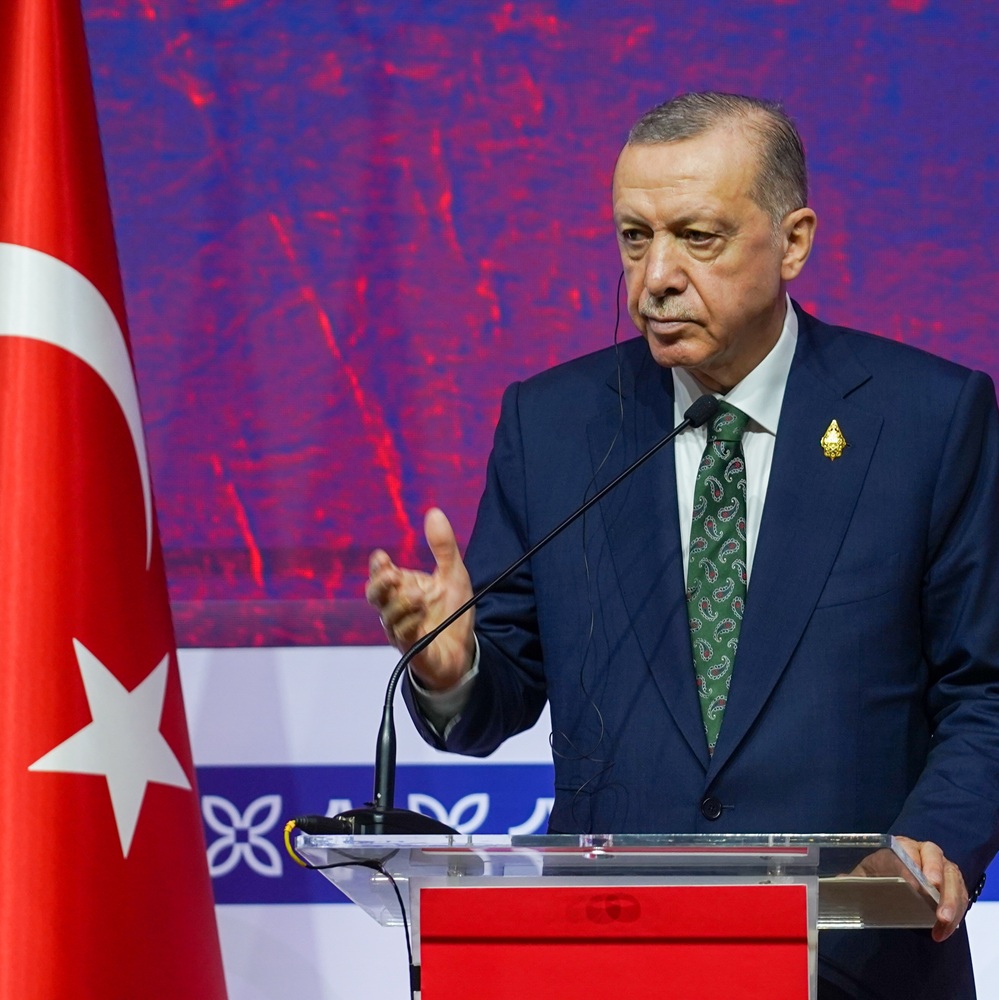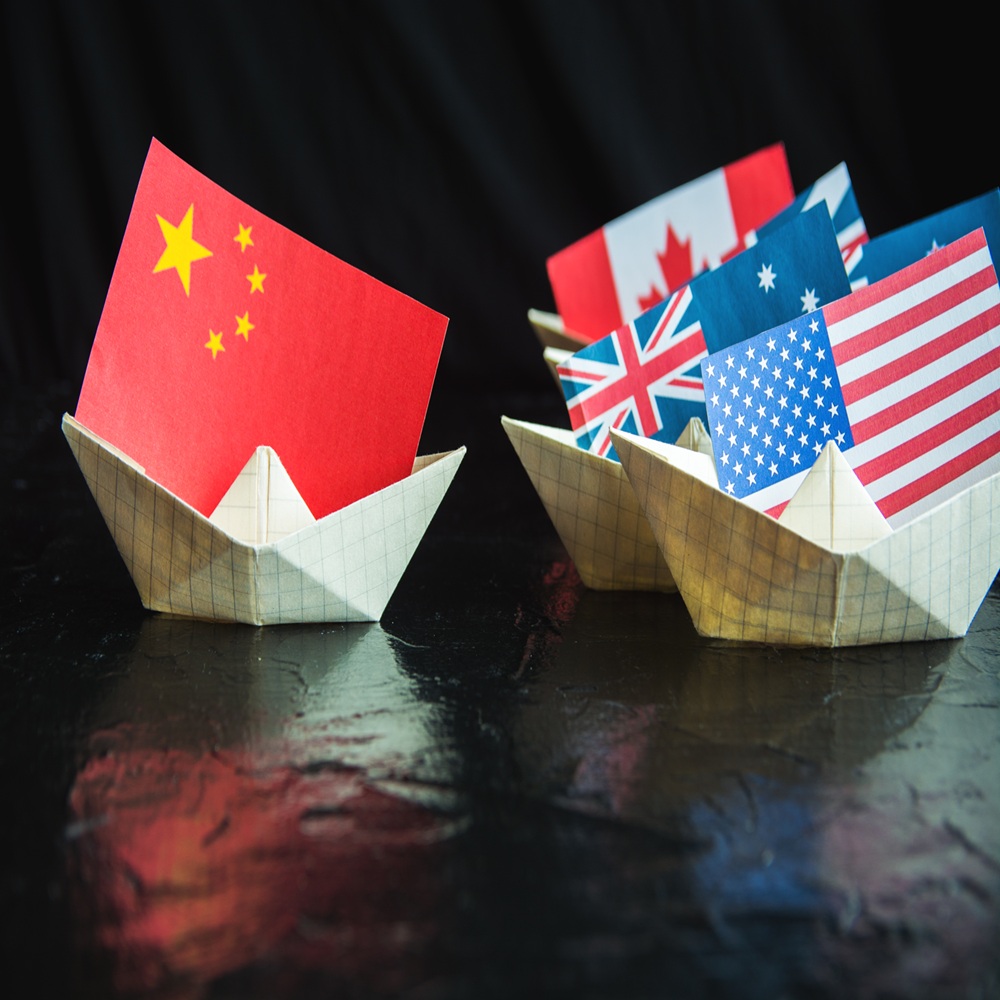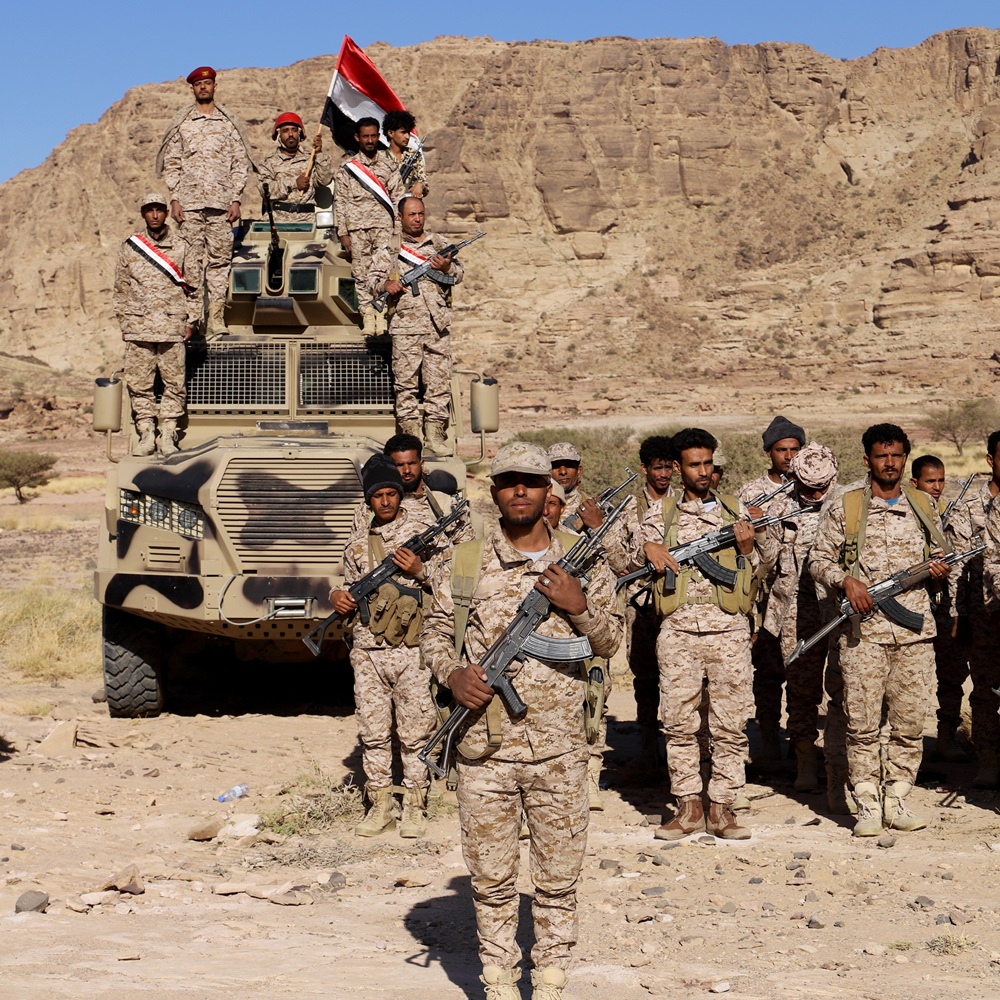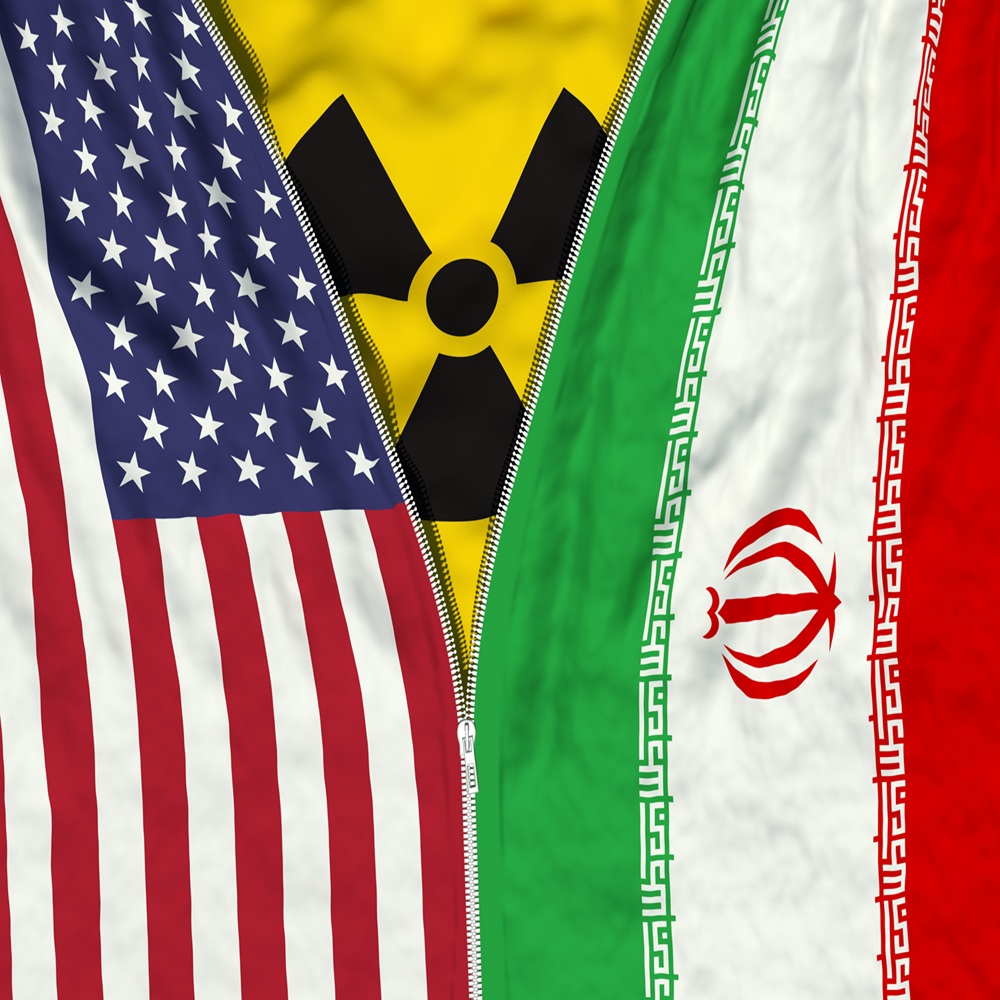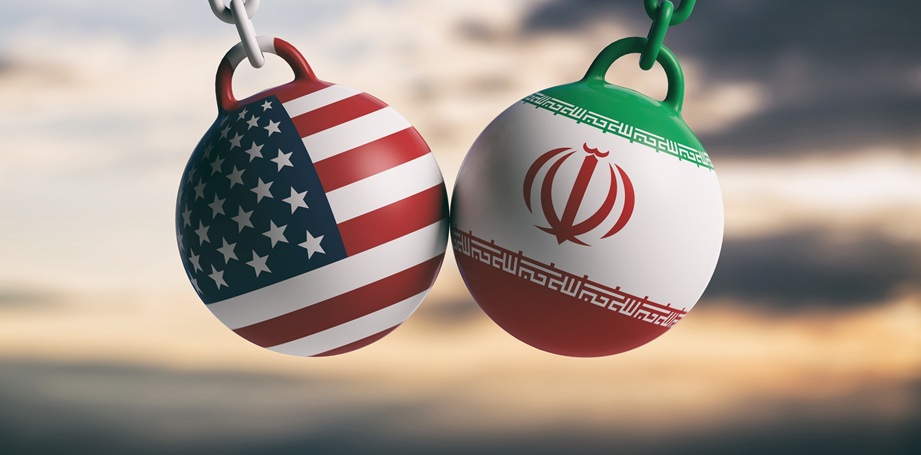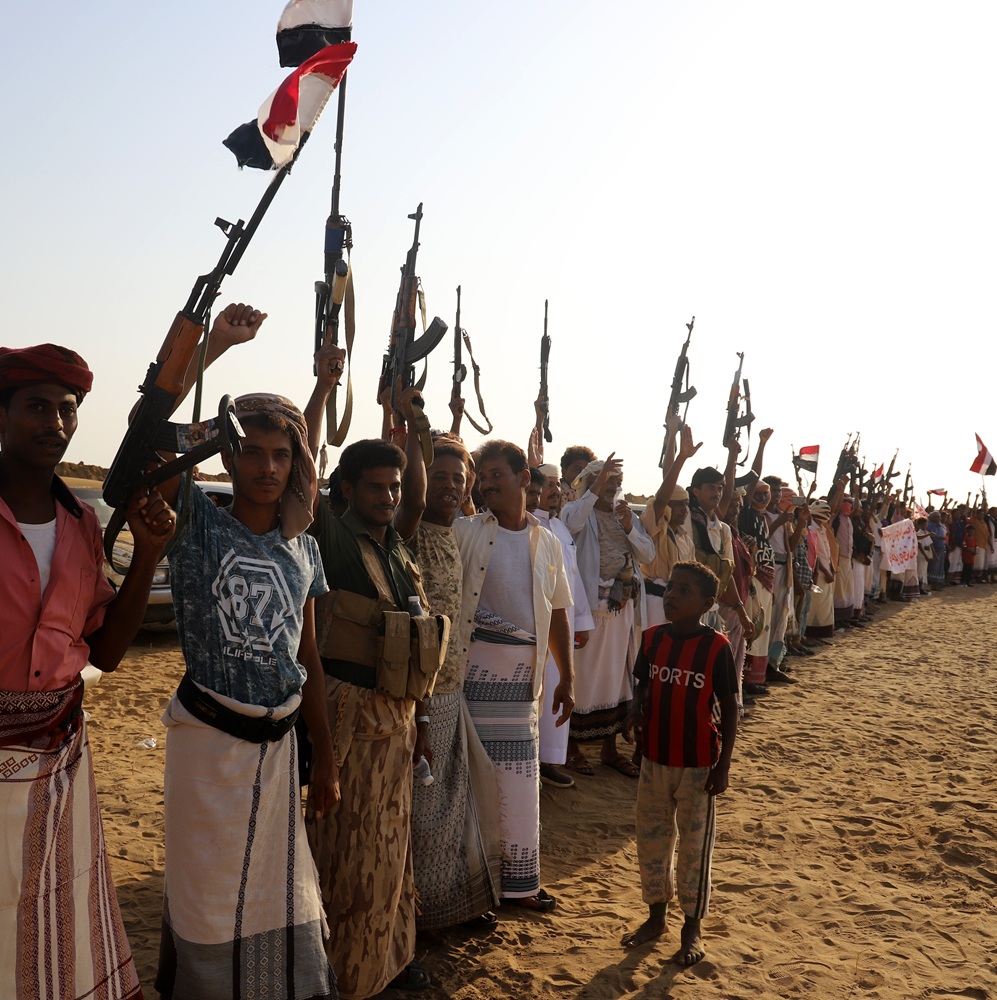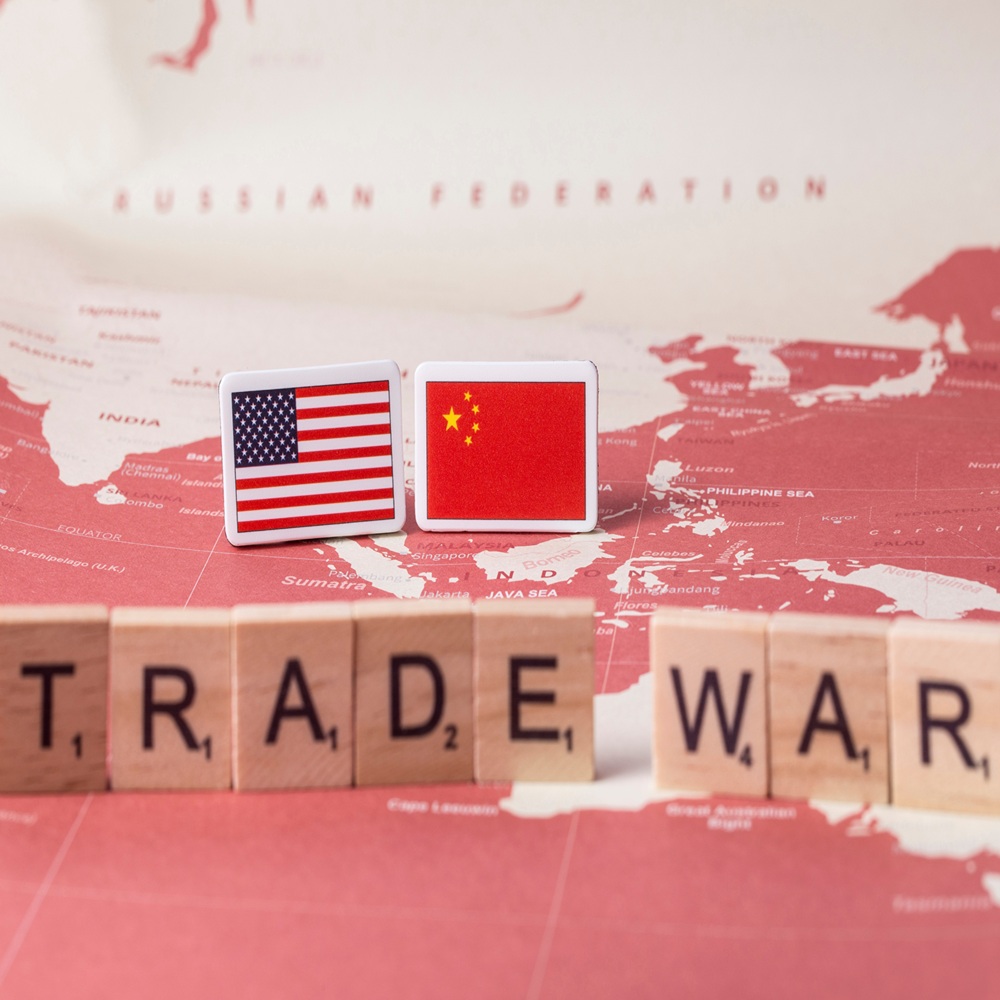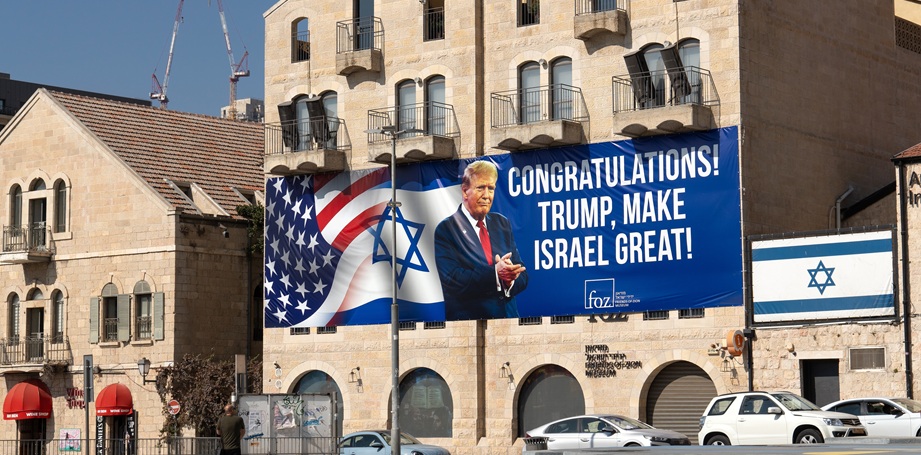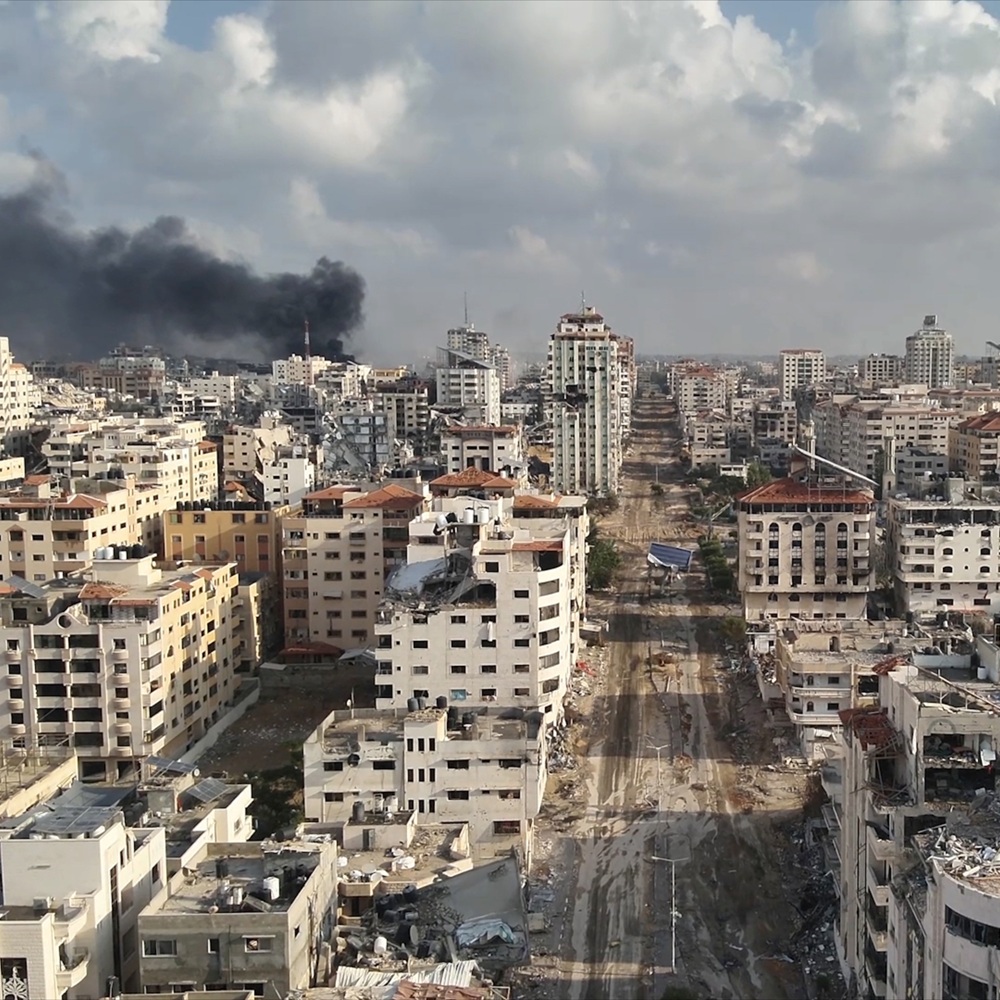Transactional Politics: Rethinking U.S.-Gulf Security and Defence Relationships amid U.S. Decline
by Kristian Coates Ulrichsen
한국어로 읽기
Leer en español
In Deutsch lesen
Gap
اقرأ بالعربية
Lire en français
Читать на русском
Abstract This article analyses the shifts in security and defence policies across the six states of the Gulf Cooperation Council (GCC) and disentangles political and geopolitical strains in the U.S.-Gulf relationship from practical measures to boost cooperation and deepen interoperability. In examining the trajectory of security and defence relationships, the article assesses the stability and durability of the underlying components of U.S.-Gulf partnerships in a time of rapid change. The article begins a section that details how and why the perception of U.S. disengagement has evolved, despite ongoing reliance on facilities such as Al-Udeid in Qatar for forward basing arrangements, before a second section examines regional responses to the withdrawal from Afghanistan in 2021, the Russia-Ukraine war in 2022, and the Israeli war in Gaza that erupted in 2023. A third section explores the ‘nuts and bolts’ of security and defence relationships and considers issues such as U.S. arms sales and Department of Defense programs, such as Red Sands in Saudi Arabia and the Comprehensive Security Integration and Prosperity Agreement with Bahrain, as ways to boost cooperation in the face of political tension and stiff competition. As U.S. troop levels have ebbed and flowed, a final section considers whether a more flexible approach to security relationships is sustainable in a far more transactional era of international power and politics. Little more than 6 months separated the chaotic U.S. withdrawal from Afghanistan in August 2021 from the full-scale Russian invasion of Ukraine in February 2022.[1] The manner by which the U.S. was seen by many observers to abandon the Afghan government in the face of a resurgent Taliban cast doubt among partner nations in the Gulf Cooperation Council (GCC) as to the reliability and ‘staying power’ of the U.S. in the region, and rekindled memories of the withdrawal of American support for Hosni Mubarak in Egypt as the Arab uprisings began in early 2011.[2] Kabul appeared to be another blow to a U.S.-led regional order that was already being questioned by officials in the Gulf States even as they contributed to its weakening by diversifying their own political, economic, and, to a lesser extent, security and defence relationships. For many in leadership positions in the Gulf States, the fall of Kabul appeared to be one more step in a process of U.S. disengagement which they perceived to be one-directional and to take place across successive presidencies as different as Obama was to Trump and Trump was to Biden.[3] Whereas the withdrawal from Afghanistan witnessed the U.S. acting unilaterally to secure its own interests, narrowly defined and without seeming to take account of those of its partners and allies, the build-up of tension in Ukraine saw the Biden administration engage intensively with allies and partners in the runup to and aftermath of the Russian invasion. U.S. intelligence and information-sharing, which were seen to have erred badly in Afghanistan in 2021, was a high-profile and very visible policy over Ukraine in 2022, and restored a measure of credibility, especially among NATO allies.[4] However, in the Gulf States, the policy response to Ukraine did not deliver a ‘dividend’ in terms of restoring faith in the U.S. as a trustworthy partner, as GCC states pursued hedging strategies and further diversified their range of security partnerships, albeit in divergent ways. The war in Gaza, which erupted after the Hamas-led incursion into southern Israel on October 7, 2023, generated additional questions about the durability of an increasingly fragile regional order.[5] And yet, the ‘nuts and bolts’ of security and defence ties between the U.S. and Gulf States have continued to evolve, albeit in a looser and more transactional form that at any time since the structure of U.S. primacy in the region took shape in the late-1980s and early-1990s. Examples of diverging trajectories include the United Arab Emirates becoming a safe haven for Russian capital and business, regional responses to Houthi attacks on shipping in the Red Sea, and the resilience of Saudi-Iranian ties even as hopes for Saudi-Israeli normalization faded. In October 2024, the decision of the Saudi Crown Prince, Mohammed bin Salman, to receive Iran’s Foreign Minister, Abbas Araghchi, just as the Biden administration was weighing its support for a retaliatory Israeli attack on Iran, demonstrated how perceptions of regional interests were moving apart.[6] It is this ‘puzzle’ of divergence in the political and security tracks of U.S.-Gulf relations that is the focus of analysis, as ties have simultaneously become more fragile yet also shown resilient adaptability. This article examines the changing trajectories of U.S.-Gulf security relationships and moves beyond the focus, often seen in American policy discourse, on U.S. demands for ‘burden-sharing’ among regional partners, which redoubled in the first and second Trump presidencies. Instead, the article examines the ways in which the Gulf States are developing a more transactional approach to U.S. partnerships, resulting in a more flexible model of cooperation. This is consistent with broader shifts from a U.S.-dominated regional order toward the internationalization of regional security structures, as policy preferences (on all sides) have gradually diverged. While there is no monolithic approach to ‘the Gulf’, by and large there is a trend toward states no longer being willing to rely solely on U.S. guarantees, borne out of events in the 2010s, and to developing a more diversified portfolio of security and defence partnerships, again at different speeds across different countries, and with no uniformity on the choice of external partner. At the same time, several Gulf States, notably Saudi Arabia, the United Arab Emirates (UAE), and Qatar have emerged as assertive regional and international actors, and new forms of partnership have evolved. There are four sections to this article, which begins with an examination of how and why the perception in the Gulf States of U.S. disengagement has evolved, despite ongoing reliance on facilities such as Al-Udeid in Qatar for forward basing arrangements. A second section examines regional responses to the withdrawal from Afghanistan in 2021, the Russia-Ukraine war in 2022, and the conflict in Gaza which began in October 2023. The third section explores the ‘nuts and bolts’ of security and defence relationships and considers issues such as U.S. arms sales and Department of Defense programs, such as Red Sands in Saudi Arabia and the recently concluded Comprehensive Security Integration and Prosperity Agreement with Bahrain, as ways to boost practical security cooperation in the face of political tension and stiff competition. As U.S. troop levels have ebbed and flowed, the concluding section considers whether and how a more flexible approach to security relationships is sustainable in a more transactional era of power and politics. Gulf States’ Perceptions of U.S. Disengagement A belief held by many policymakers in the Gulf States, that the U.S. is less engaged and/or less reliable and predictable in its approach to regional affairs, has taken root over the decade and a half which has elapsed since the Arab Spring uprisings of 2010–11. To be sure, this belief is rooted in an idealized view of U.S.-Gulf relations which has, over the three decades since the Gulf War in 1991, been based on extremely visible and large-scale force deployments in the region, especially during the wars in Afghanistan and Iraq, which were not typical of long-term trends.[7] Nevertheless, this perception has lasted across consecutive presidential administrations and has become more deeply entrenched precisely because a pattern has been seen to develop across such different presidencies as Obama to Trump to Biden, and as U.S. troop levels in the region were inexorably drawn down.[8] While there was no regionwide consensus or monolithic view of the U.S. in the Gulf, and no one single incident which sparked a reassessment, attitudes evolved in response to a series of policy decisions which unfolded over the space of a decade. The effect has been to strengthen a process of diversification of Gulf States’ security and defence relationships to avoid over-reliance on any single partner in a world of growing multipolarity and strategic options.[9] Deciding where to begin with the many issues which caused degrees of concern in Gulf capitals at U.S. policymaking intent is a little like asking the proverbial question about how long a piece of string might be. For example, the second term of the George W. Bush administration saw frictions develop between the U.S. and GCC states, notably Saudi Arabia, over the mishandling of the occupation of post-Saddam Iraq and the sense of anger in Gulf capitals that Iran appeared to be the primary geopolitical beneficiary.[10] This caused significant mistrust in Riyadh at U.S. policy intent (and outcomes) in Iraq and the region.[11] It was in the Obama administration, however, that the perception of drift began to develop, including in relation to the so-called ‘pivot to Asia’ in the late-2000s which Gulf leaders (erroneously) saw as a shift in U.S. focus away from the Middle East, rather than post-Cold War Europe.[12] However, it was the withdrawal of political support from the embattled Egyptian president, Hosni Mubarak, in February 2011, which caused shock and bitterness in Gulf capitals, who saw the move as a betrayal of a longstanding U.S. partner.[13] The Obama administration’s response to the Arab uprisings (which, in the case of unrest in GCC states, was far more muted and reflective of U.S. interests in the stability of its regional partners) was followed by the disclosure in November 2013 that American and Iranian officials had been meeting secretly in Oman for over a year, and by the subsequent negotiations between the P5 + 1 and Iran for a Joint Comprehensive Plan of Action (JCPOA) to address the Iranian nuclear file in 2015. Both negotiations cut out the GCC states and added to concerns at the direction of U.S. policymaking in the region.[14] Partly in response to concerns that the JCPOA focused too narrowly on only one aspect of Iran’s regional activity and did not address other issues, Saudi Arabia and the UAE intervened militarily in Yemen in March 2015 to push back the advance of Houthi rebels they believed were in receipt of direct Iranian assistance.[15] An interview given by Obama to The Atlantic magazine in 2016 sealed the breakdown in working relations as officials reacted with fury to a comment about ‘free riders’ which they perceived to be directed at them rather than, as was the case, against the British and French governments over their intervention in Libya in 2011.[16] Genuine displeasure, as well as a degree of bewilderment, at the direction of certain aspects of the Obama administration’s policies toward the Middle East contributed to the early embrace of the Trump presidency by officials in several Gulf capitals, including Riyadh and Abu Dhabi as well as Manama.[17] In June 2017, Trump initially endorsed the Saudi-Emirati-Bahraini (as well as Egyptian) move to isolate Qatar, in a decision which caused shockwaves in Doha as well as in the U.S. Departments of State and Defense. The sight of a sitting president seemingly abandoning a U.S. partner, albeit only temporarily, raised powerful questions about the reliability and durability of the Gulf States’ most important external relationship.[18] Two years later, it was the Saudis’ and Emiratis’ turn to call into question the partnership with the U.S. as the Trump administration chose not to respond to a series of attacks, generally although never formally attributed to Iran or to Iranian proxy groups, on energy and maritime targets in Saudi Arabia and the UAE.[19] In September 2019, 2 days after a missile and drone attack on Saudi oil facilities temporarily knocked out half the Kingdom’s oil production, Trump noted pointedly ‘That was an attack on Saudi Arabia, and that wasn’t an attack on us’ and added that ‘I’m somebody that would like not to have war’.[20] Political decisions by successive presidential administrations therefore injected doubt as to the value or even the existence of security guarantees which were believed by many observers of regional affairs to form the bedrock of contemporary U.S.-Gulf relations.[21] The impact became clear when tensions between the United States and Iran soared in the aftermath of the killing of Qassim Soleimani in an American drone strike in Baghdad in January 2020, when regional officials in GCC states called for de-escalation.[22] President Biden sought to restore U.S. credibility when he reasserted ‘the U.S. commitment to help Saudi Arabia defend its territory as it faces attacks from Iranian-aligned groups’ after he took office in 2021.[23] However, poor relations between Biden and Saudi Crown Prince Mohammed bin Salman, stemming from comments Biden made in a campaign debate in 2019, proved insurmountable, with MBS going so far as to reply ‘Simply, I do not care’, when asked in 2022 what he thought of Biden’s opinion of him.[24] Regional Responses to Afghanistan, Ukraine, and Gaza In August 2021, the disorganized and seemingly unilateral nature of the final U.S. withdrawal from Kabul provided yet another indication, in the eyes of already sceptical policy analysts and officials in GCC states, of the potentially capricious nature of American interests. While there was a broad consensus that the ‘forever wars’ launched in the 2000s could not continue indefinitely, the manner by which the Biden administration conducted its final drawdown reinforced the concerns listed above about the durability of U.S. commitments to regional partners, and as elements of the political right and left coalesced around support for policies of restraint and isolationism.[25] The sight of the Afghan air force rendered inoperable after the withdrawal of American training and maintenance, and the flight of Ashraf Ghani, the U.S.-backed President, to the UAE, were indicators of the vulnerability of over-reliance on single security partners, however powerful.[26] Less than six months later, the strenuous attempts made by the Biden administration to work with allies and partners to coordinate policy in early 2022 as Russian forces massed on the border with Ukraine, and then to push back against Moscow after the full-scale invasion commenced on February 24, ought to have repaired some of the damage caused by the optics around the chaos in Kabul in 2021. Specific measures included the deployment of additional U.S. troops to Eastern Europe as well as the sharing of intelligence designed to deter Vladimir Putin from moving into Ukraine.[27] Qatar, which was accorded Major Non-NATO Ally Status by the Biden administration in January 2022, in part a recognition of its assistance to U.S. and international humanitarian efforts in Afghanistan during and after the withdrawal, also sought to play a balancing role in gas markets as Emir Tamim visited Biden in the White House and hosted Russian energy officials in Doha.[28] Europe’s pivot away from Russia restated the Gulf States’ centrality in global energy security considerations, while the rise in oil and gas prices in late-2011 and for most of 2022 also returned GCC states’ budgets to surplus after years of deficits following the oil price crash of 2014.[29] However, the ‘coming together’ effect noticeable in the U.S.-European (and NATO) response to Russia-Ukraine in 2022 did not appear to mollify strained relationships in the Gulf; if anything, the responses to the invasion made the different trajectories which had taken shape in prior years all the more visible. Like much of the Global South, the Gulf States did not take sides in the Russia-Ukraine war. Policymakers in GCC capitals did not share the view of their counterparts in Washington and Europe that the collective defence of Ukraine was ‘an international order defining event, a generational moment in which international alliances and norms are being reshaped’.[30] Regional leaders refused to get drawn into a new era of bloc rivalry and, unlike the Iraqi invasion of Kuwait in 1990, did not deem Russia’s aggression against Ukraine to pose a direct threat to their political or security interests, in common with counterparts across much of the ‘Global South’.[31] A variation in stances toward the February 2022 invasion and subsequent developments nevertheless fell along a spectrum that ranged from Qatar aligning most closely with Ukraine (and the U.S. position) and Saudi Arabia, Bahrain, and the UAE leaning more closely toward Russia, with Kuwait and Oman falling somewhat in-between. These variations in position mirrored those during the GCC rift between 2017 and 2020, and indicate that, for the Qatari leadership, the sight of a larger power threatening (and ultimately invading) a smaller neighbour carried resonance, so soon after the blockade era when Doha faced pressure from Saudi Arabia, Bahrain, and the UAE. However, while Qatari leaders announced a pause in new investments in Russia, existing links with Moscow remained unchanged, and the Qatar Investment Authority became the largest non-Russian shareholder in Rosneft after BP announced it would terminate its own relationship with the state-owned giant.[32] The UAE position was complicated by the fact that the country had just taken up a rotating two-year seat on the United Nations Security Council for 2022–23. This forced the UAE to take positions even if the Emirati choice was to abstain on two Security Council votes in February 2022 which condemned the Russian invasion and called for an emergency session of the United General Assembly – abstentions which caused considerable friction with the U.S.[33] Policy responses in and after 2022 reinforced perceptions of drift in relations between the U.S. and key Gulf partners. Both Mohammed bin Zayed in Abu Dhabi and Mohammed bin Salman in Riyadh spoke on several occasions with President Putin and appeared to rebuff entreaties by President Biden during the opening weeks of the war.[34] Positions taken on Russia-Ukraine in 2022 illustrated how tensions that built up over a period of years beforehand became manifest in the regional reactions. After the imposition of additional U.S., European Union, and British sanctions on Russian entities in 2022, the UAE (and Dubai in particular) emerged as a welcoming haven for Russian capital and business elites, several of whom appeared to obtain Emirati citizenship.[35] Many of the sanctioned Russian companies continued to do business with counterparts in the Gulf States with few evident consequences, creating gaps in the moves to isolate the Putin regime. In 2023, Mohammed bin Saleh Al-Sada, the former Minister of State for Energy in Qatar from 2011 to 2018, was elected Chairman of the Board of Rosneft, in a private capacity but demonstrative of the limited reach of Western appeals to reduce Gulf ties with sanctioned entities in Russia.[36] The case of oil prices illustrated how the Gulf States assertively put their own interests forward even if they were seen to clash with the interests of partners such as the U.S. There is nothing untoward about this, as states routinely pursue national interests based on a pragmatic calculation of internal and external interests. However, in the context of the emphasis placed by the Biden administration and its European allies on the defence of Ukraine in the name of an international rules-based order, the sight of their closest partners in the Middle East not joining with anything like the same strength of approach sent visible signals of policy divergence over Ukraine. European and American leaders, including Boris Johnson and Joe Biden, visited Saudi Arabia in the spring and summer of 2022 to make the case for an increase in Saudi (and OPEC/OPEC+) output in order to bring down oil prices which had surged.[37] Moreover, the acrimonious aftermath of President Biden’s visit to Jeddah and meeting with Mohammed bin Salman in July 2022, and the coordinated Saudi-Russian oil output cut in October 2022, demonstrated the divergence of interests, especially as officials in D.C. and Riyadh traded barbs over whether (or not) the Saudi decision to cut output, or the Biden administration’s request to increase production, were politically motivated.[38] Following the outbreak of the war in Gaza after the Hamas-led attacks on southern Israel on October 7, 2023, the legitimacy of aspects of the system of international order came under growing scrutiny by critics who contrasted U.S. responses to developments in Ukraine as opposed to Gaza. Images of Palestinian suffering caused anger across the Middle East as well as much of the Global South, including in the Gulf States, and made it politically difficult for officials to ignore, with the Saudi leadership, in particular, reassessing the terms of any normalization agreement with Israel.[39] Discrepancies in labelling acts committed by Russian and Israeli forces (in Ukraine and Gaza, respectively) as ‘war crimes’, and about whether to engage with the International Court of Justice and the International Criminal Court, brought accusations of double standards and hypocrisy, and weakened the credibility of the international order in the eyes of many in the non-Western world.[40] While Gaza did not prove a breaking-point in U.S.-Gulf relations, it did bring to the surface the different trajectories in security and defence interests and priorities. Statements by leaders in Gulf capitals hardened as the bombardment of Gaza continued, with even Mohammed bin Salman going as far as to condemn ‘the collective genocide committed by Israel against the brotherly Palestinian people’ at an Arab-Islamic Summit in Riyadh in November 2024.[41] These remarks came just 14 months after the Crown Prince told Fox News in September 2023 that ‘every day, we get closer’ to a Saudi-Israeli breakthrough that, he predicted, would be ‘the biggest historical deal since the end of the Cold War’.[42] Officials in Oman went further in the use of harsh language to condemn Israeli actions which at times bordered on tacit support for Hamas, and was reflective of and rooted in an upsurge of anger among Omani citizens, hitherto one of the most politically quiescent commentariats in the region.[43] Leaders in all GCC states had to acknowledge the domestic backlash against the destruction of Gaza, a balancing act made more delicate in Bahrain and the UAE, the two Gulf signatories to the Abraham Accords with Israel in 2020.[44] An additional consideration for policymakers in Riyadh, Abu Dhabi, Dubai, and Doha, in particular, was an interest in ‘de-risking’ potential regional volatility as focus turned to large-scale developmental, energy, and infrastructure projects, including those associated with Saudi Arabia’s Vision 2030.[45] ‘Nuts and Bolts’ of Evolving Security and Defence Relationships In the face of the political and geopolitical tensions noted above, U.S. security relationships and defence partnerships with the Gulf States have evolved. A decade of change since 2015 has illustrated that ties tend to work better on an ad hoc, case-by-case basis rather than as part of a grand strategic framework. An example of the latter was the launch of a U.S.-GCC Strategic Partnership in 2015, at a summit at Camp David between Gulf leaders (only two of whom attended) and President Obama, and the creation of five working groups to cover cooperation in counterterrorism, missile defence, military preparedness and training, critical defence capabilities, and cyber security.[46] Both the working groups and the strategic partnership fell into abeyance during the Trump administration, and were superseded by U.S. efforts to form a Middle East Strategic Alliance (MESA) with GCC states plus Egypt and Jordan. MESA failed to gain traction for a variety of reasons, including the intra-GCC rift over Qatar, a failure of parties to agree on the scope and scale of the issues to be covered by the initiative, and Egypt’s withdrawal in 2019.[47] The U.S.-GCC working groups reconvened in February 2023, nearly a year into the Russia-Ukraine war, for their first meeting in years, against the backdrop of the supply of Iranian armed drones to Russia and the provision of Russian defence assistance to Iran. The fact that Iranian weapons systems were being tested on the battlefield in Ukraine and in operational and combat settings against civilian and infrastructure targets highlighted how a secondary impact of the Russia-Ukraine war could impact on U.S.-GCC interests.[48] U.S. and Gulf States’ navies then participated in a major 18-day International Maritime Exercise in February and March 2023 co-led by Saudi Arabia, Bahrain, and the U.S. and directed from the Maritime Security Centre in Oman. Held under the auspices of the U.S. Naval Forces Central Command, more than 7000 personnel and 35 ships from over 50 countries and organizations took part in exercises in the Red Sea, the Gulf of Aden, the Arabian Sea, and the Gulf.[49] Perhaps uncoincidentally, Russia and China joined Iran in a joint naval exercise in the Gulf of Oman the same month, illustrating how, in the ‘nuts and bolts’ of security and defence relationships, the GCC still chose to side with the U.S.[50] A host of new initiatives since 2020 suggest that new security partnerships between the U.S. and individual Gulf States are evolving on bespoke bilateral and issue-specific lines. CENTCOM has worked closely with Saudi officials to develop the Red Sands Integrated Experimentation Centre as a regional testing facility in Saudi Arabia to boost cooperation against the shared threat from missile and drone attacks from Iran and regional proxies.[51] Joint exercises involving U.S. and Saudi forces have tested systems to destroy and disable unmanned aerial systems of the type that breached Saudi air defences during the ballistic missile and drone strikes on oil infrastructure facilities in September 2019.[52] U.S. officials also play an integral role in Saudi Arabia’s defence transformation plan with Department of Defense personnel assisting their Saudi counterparts with overhauling human-capital development, joint staff development, intelligence reorganization and force sustainment, and the development of a National Defence College. The U.S. role in capacity-building is a step up from the hitherto-largely scattered interventions tied to the foreign military sales process rather than in support of any deeper or underlying policy objective.[53] Another example of renewed U.S. commitment to security ties with a Gulf partner was the signing in September 2023 of a Comprehensive Security Integration and Prosperity Agreement (C-SIPA) with Bahrain. Announced during a visit to Washington, D.C. by Bahrain’s Crown Prince Salman bin Hamad Al Khalifa and described as ‘the most advanced formal security agreement the United States has with any country in the region’, C-SIPA will expand defence and security cooperation as well as trade and investment ties through collaborative measures across the security spectrum, albeit without a mutual defence guarantee.[54] Although many of the specific security-related initiatives are classified, C-SIPA may build upon the recent spate of U.S. strategic dialogues with Gulf partners, which began with Qatar in 2017 and now encompass every GCC state on a bilateral (rather than collective) basis. How C-SIPA unfolds will likely be studied carefully in other Gulf capitals, especially Riyadh and Abu Dhabi, which have long demanded enhanced U.S. defence guarantees, most recently in relation to any U.S.-brokered agreement to normalize with Israel (in the Saudi case) and in the desire for ‘codified’ U.S. security commitments (for the UAE).[55] Officials in the UAE have chosen a different approach which reflects the confidence of Emirati policymakers that the country is an influential ‘middle power’ capable of holding its own on an inter-regional and increasingly global stage. This was evident in the signing of the Abraham Accord with Israel in September 2020 in which the text of the agreement signed by the UAE was far more substantive than those signed by Morocco, Bahrain, and Sudan, and included reference to a ‘Strategic Agenda for the Middle East’ that was unique to the Emirati-Israeli accord.[56] The strategic and security-focused aspects of the UAE-Israel agreement enabled the normalization process to survive periodic frictions in the political relationship, as security and defence relations took centre-stage in the new initiatives and joint ventures announced by both parties, and neither the UAE nor Bahrain has withdrawn from the Accords although other states have not joined.[57] Both Israel and the UAE, as small states with significant hard power capabilities, have operationalized formal cooperation in the security and defence realm, including a first joint military exercise in the Red Sea in November 2021 which was coordinated by the U.S. Fifth Fleet (stationed in Bahrain), which ‘set a precedent for collective policing at sea to counter weapons-smuggling and threats posed by pirates and the Iranian navy’.[58] In February 2023, a venture between EDGE, an Emirati defence consortium and Israel Aerospace Industries unveiled their first jointly created unmanned naval vessel, for use in surveillance, reconnaissance, and mine detection, during the annual Naval Defence and Maritime Security Exhibition in Abu Dhabi.[59] Sharing of intelligence, reportedly concerning Hezbollah and the Houthi movement in Yemen, also took place, including in the aftermath of three missile and drone strikes on Abu Dhabi in January 2022.[60] Emirati policymakers have continued to engage with the U.S. and other regional and international partners in a series of more focused ‘mini-lateral’ fora, including the 12U2 (with India, Israel, and the U.S.), the Negev Forum (with the U.S. and other Arab states which have normalized relations with Israel), the Somalia Quint (with the U.S., the U.K., Qatar, and Turkey), and the Yemen Quartet (with the U.S., the U.K., and Saudi Arabia).[61] Such issue-based tie-ups outside formal institutions provide opportunities for middle powers such as the UAE to engage with specific partners and have become key elements in the UAE’s evolving approach to regional and foreign affairs, especially in Asia and the Indo-Pacific, areas of increasing focus both for the Gulf States (for economic and energy reasons) and the U.S. (connected to power competition and strategic rivalry with China).[62] How the U.S. and its partners in the Gulf balance (or fail to balance) the competing and sometimes diverging interests vis-à-vis China (and, to an extent, Russia) will go some way toward defining the next phase of political relationships that may still impinge on defence and security ties, as seen in the furore over a possible Chinese naval facility in Abu Dhabi that contributed in part to significant tensions in the bilateral U.S.-UAE relationship in 2021.[63] Shifting Toward a Transactional Approach It may be that the future of relationships between the U.S. and the Gulf States will be based around a set of transactional principles that do not commit or bind the parties to long-term arrangements and represent a more fluid approach to regional affairs. A stronger but narrower technocratic focus on shared areas of interest could help to insulate U.S.-Gulf relationships from the types of political pressures and uncertainties which have generated the perception of drift. However, ‘taking politics out’ of the equation may not be easy to do in practice and could add to layers of mutual misunderstandings or grievance, as with the U.S. pressure on the UAE over its relations with China and Russia, or on Saudi Arabia not to join the expanded BRICS + grouping in 2023 (which the UAE joined but the Saudis have yet to do).[64] Several developments since 2023 provide indications as to how a new configuration of interests could function in a genuinely multipolar landscape. The Saudi-Iran agreement in March 2023 to restore diplomatic relations, which was announced in (and by) China, could be a harbinger of what a more variegated relationship might look like, with greater flexibility to rethink and reorient interests and policies. The Beijing deal appeared to take U.S. officials by surprise, and came in the midst of Beltway speculation about the prospect of Saudi normalization with Israel rather than with Iran.[65] While Saudi and Iranian officials had engaged in multiple prior rounds of talks, beginning in 2021 and facilitated by Iraq and Oman, the decision to obtain Chinese endorsement of the deal was as symbolic as it was significant.[66] China has diplomatic relations with Teheran and Riyadh as well as energy and economic ties in both Iran and Saudi Arabia, and thus could play a balancing role in ways the U.S. simply cannot. Moreover, at a time of rising tension between Iran and the U.S. and Israel, the Chinese backing for the Saudi deal signalled the desire of Beijing and its two regional partners for diplomacy and not conflict.[67] As the Gulf has seen a regional de-escalation of tension since 2021, officials in Gulf States have leveraged what influence they have to contribute to security in different ways. These include mediation, whether in regional conflicts (by Oman and Qatar) or in aspects of the Russia-Ukraine war (by Saudi Arabia and the UAE). Oman’s Foreign Minister since 2020 has been Badr bin Hamad Albusaidi, for whom a characteristic of Omani foreign policy has long been that ‘we try to make use of our intermediate position between larger powers to reduce the potential for conflict in our neighbourhood’.[68] Omani officials have kept open indirect channels of dialogue between the U.S. and Iran and also between Saudi and Houthi officials as they continue to seek to reach agreement in Yemen.[69] Qatari mediators engaged intensively with U.S. and Egyptian counterparts to secure the release of hostages taken by Hamas in October 2023, in return for a pause in Israeli military operations in Gaza, and reached a fragile three-stage ceasefire agreement in January 2025, one day before the Biden administration gave way to the second Trump presidency.[70] The close Qatari-U.S. coordination over Gaza built upon the confidence in Qatari mediation abilities generated by their role in facilitating and supporting the U.S. withdrawal from Kabul in 2021.[71] Saudi and Emirati officials engaged differently as they sought to leverage their relationships both with the U.S. and Russia to facilitate prisoner exchanges and contribute to confidence-building measures to mitigate the impact of the war in Ukraine. The occasional releases of prisoners may only have amounted to pinpricks in the course of the most serious conflict in Europe since the Second World War, but they illustrate that, for all the political tensions over the Gulf States’ reluctance to be drawn into picking sides in any great power competition, the ability to maintain diverse contacts and balance different relationships is conducive to diplomatic initiatives in a polarized world. The subsequent Saudi centrality to the process of U.S.-Russian re-engagement in Trump’s second term illustrated the Kingdom’s desire to have a seat at the table and burnish its credibility as a diplomatic facilitator, possibly with potential future Iran-U.S. talks in mind, especially after Saudi and Emirati displeasure at being cut out of the JCPOA negotiations in 2015.[72] Attacks on maritime targets in the Red Sea by Houthi militants in Yemen have nevertheless highlighted the delicate balancing act facing Gulf States as the deadliest war between Israelis and Palestinians since 1948 threatens the rapprochement that had marked the conduct of regional politics across the Middle East prior to October 7, 2023. Memories of Houthi missile and drone attacks against Saudi cities and infrastructure targets (between 2015 and 2022) and against Abu Dhabi (in 2022) remain fresh. Especially as Vision 2030 passed its halfway point (having been launched by Mohammed bin Salman in 2016) and the ‘giga-projects’ along Saudi Arabia’s Red Sea coastline move into the construction and delivery phase, ‘de-risking’ has become a priority for the Saudi leadership as they seek to attract foreign investors and visitors.[73] Officials remain mindful of the optics that went around the world during the Saudi Arabian Grand Prix in March 2022 when the annual Formula One race in Jeddah took place against the backdrop of thick black smoke billowing from a nearby oil storage facility struck by the Houthis the day before.[74] Policy responses to the Houthi attacks in the Red Sea which began in November 2023 and triggered a multinational response in January 2024 indicated the careful balancing act at play in the Gulf, especially for Saudi Arabia, given the location of projects such as Neom on the Red Sea coastline. Bahrain was the only GCC state to be named as a participant in Operation Prosperity Guardian, the multi-country coalition which was formed in December 2023 to respond to the maritime attacks. However, Bahrain did not take part in the kinetic ship- and air-based operations and it was notable that the airstrikes against Houthi targets in Yemen did not involve U.S. or British forces based in the Gulf.[75] Instead, the strikes were launched from bases in Cyprus, the U.K., and the U.S., thereby minimizing the risks to the Gulf States from any blowback either from the Houthis or Iran. Operation Prosperity Guardian may therefore be a harbinger of a more flexible approach to U.S.-GCC relations in which security and defence cooperation continues on a technocratic basis even as there is greater elasticity, and, at times, degrees of divergence in (geo)political interests.[76] The return of Donald Trump to the Oval Office in January 2025, as the first president in 130 years to serve a non-consecutive second term, suggests that U.S. decision-making, in both domestic and foreign policy, will continue along highly transactional, unpredictable, and volatile lines. A move toward a ‘post-American’ order, regionally in the Middle East and in the structure of international politics, is likely to further reshape perceptions and policies. As the Gulf States are neither allies (in the formal sense) nor adversaries of the United States, they occupy a middle ground which may shield them from swings in U.S. policymaking toward these categories of states. It is probable that the assertion of Gulf States’ interests in engaging with Iran, as well as with China and Russia will deepen the divergence of trajectories with the U.S. and increase the likelihood that ties will reframe around a looser and more transactional-based approach. The Gaza war may not have led to a rupture with the U.S., or with Israel, but, coming in parallel with the war in Ukraine, it has intensified the repositioning of the Gulf States in a rapidly changing system of international power. Declaration of Conflicting Interests The author declared no potential conflicts of interest with respect to the research, authorship, and/or publication of this article. Funding The author received no financial support for the research, authorship, and/or publication of this article. Footnotes 1. References in this paper to the Russian invasion of Ukraine refer to the full-scale invasion which was launched by Russian forces on February 24, 2022, rather than the invasion and subsequent Russian occupation of areas of eastern Ukraine and the Crimea in 2014. 2. David Kilcullen and Greg Mills, The Ledger: Accounting for Failure in Afghanistan (London: Hurst & Co., 2021), 222–24; Marc Lynch, The Arab Uprising: The Unfinished Revolutions of the New Middle East (New York: Public Affairs, 2012), 94. 3. Tobias Borck, Seeking Stability Amidst Disorder: The Foreign Policies of Saudi Arabia, the UAE and Qatar, 2010–20 (London: Hurst & Co., 2023), 193. 4. Huw Dylan and Thomas Maguire, ‘Secret Intelligence and Public Diplomacy in the Ukraine War’, Survival 64/4 (September 2022), 34. 5. John Raine, ‘Ukraine versus Gaza’, Survival, 66/1 (February/March 2024), 173–74. 6. Ben Hubbard, ‘Iranian Official Heads to Saudi Arabia as Israel Postpones U.S. Meeting’, New York Times, October 9, 2024. 7. Dania Thafer and David Des Roches, The Arms Trade, Military Services and the Security Market in the Gulf States: Trends and Implications (Berlin: Gerlach Press, 2016), 1–7. 8. Bilal Saab, ‘After Hub-and-Spoke: US Hegemony in a New Gulf Security Order’, Atlantic CouncilReport, 2016, 4 9. Tobias Borck, Seeking Stability Amidst Disorder: The Foreign Policies of Saudi Arabia, the UAE andQatar, 2010-20 (Oxford: Oxford University Press, 2023), 18; Khalifa Al-Suwaidi, The UAE After theArab Spring: Strategy for Survival (London: I.B. Tauris, 2023), 120. 10. Kristian Coates Ulrichsen, Insecure Gulf: The End of Certainty and the Transition to the Post-Oil Era(London: Hurst & Co., 2011), 40. 11. Katherine Harvey, A Self-Fulfilling Prophecy: The Saudi Struggle for Iraq (London: Hurst & Co., 2021),144–45. 12. David Roberts, Security Politics in the Gulf Monarchies: Continuity amid Change (New York: ColumbiaUniversity Press, 2023), 158. 13. Fawaz Gerges, Obama and the Middle East: The End of America’s Moment? (New York: PalgraveMacmillan, 2012), 166–67. 14. William Burns, The Back Channel: American Diplomacy in a Disordered World (London: Hurst & Co.,2019), 361–62; Marc Lynch, The New Arab Wars: Uprisings and Anarchy in the Middle East (New York:Public Affairs, 2016), 226–28. 15. Thomas Juneau, ‘Iran’s Policy Towards the Houthis in Yemen: A Limited Return on a Modest In-vestment’, International Affairs 92/3 (May 2016), 658. 16. Jeffrey Goldberg, ‘The Obama Doctrine’, The Atlantic, March 10, 2016; Turki al-Faisal Al Saud, ‘Mr.Obama, We Are Not ‘Free Riders’, Arab News, March 14, 2016. 17. Mehran Kamrava, Troubled Waters: Insecurity in the Persian Gulf (Ithaca: Cornell University Press,2018), 71. 18. Kristian Coates Ulrichsen, Qatar and the Gulf Crisis (London: Hurst & Co., 2020), 77–78. 19. By contrast, the Trump administration did respond on two occasions when U.S. assets were targeted, firstin June 2019 after a U.S. drone was shot down over the Gulf and then in December 2019 after anAmerican contractor was killed in a missile strike on a base in Iraq. 20. Steve Holland and Rania El Gamal, ‘Trump Says He Does Not Want War After Attack on Saudi OilFacilities’, Reuters, September 16, 2019. 21. David Roberts, ‘For Decades, Gulf Leaders Counted on U.S. Protection. Here’s What Changed’,Washington Post, January 30, 2020. 22. Tamara Abueish, ‘Saudi Arabia’s Vice Defense Minister Discusses De-escalation with Esper’, AlArabiya English, January 7, 2020. 23. Anon., ‘Biden Raises Yemen, Human Rights in Call with Saudi King Salman’, Al Jazeera, February 25, 2021. 24. Emile Hokayem, ‘Fraught Relations: Saudi Ambitions and American Anger’, Survival 64/6 (November 2023), 9. 25. David Deudney and John Ikenberry, ‘Misplaced Restraint: The Quincy Coalition Versus Liberal Internationalism’, Survival, 63(4), 2021, 9; Alexander Hertel-Fernandez, Theda Skocpol, and Jason Sclar,‘When Political Mega-Donors Join Forces: How the Koch Network and the Democracy Alliance In-fluence Organized US Politics on the Right and Left’, Studies in American Political Development, 32(2),2018, 128. 26. Marika Theros, ‘Knowledge, Power and the Failure of US Peacemaking in Afghanistan 2018–21’,International Affairs, 99(3), 2023, 1249–50. 27. Trine Flockhart, ‘NATO in the Multi-Order World’, International Affairs 100/2 (March 2024), 473. 28. David Ottaway, ‘U.S. Calls for Help – Again – From the Tiny Arab Emirate of Qatar’, Wilson Center,February 2, 2022. 29. Li-Chen Sim, ‘The Gulf States: Beneficiaries of the Russia-Europe Energy War?’, Middle East Institute,January 12, 2023. 30. Marc Lynch, ‘Saudi Oil Cuts and American International Order’, Abu Aardvark’s MENA Academy(Substack), October 9, 2022. 31. Chris Alden, ‘The Global South and Russia’s Invasion of Ukraine’, LSE Public Policy Review, 3(1),2023, 2–4. 32. Hazar Kilani, ‘Qatar Investment Authority Holding Onto its Russian Assets for Now’, Doha News,March 2, 2022. 33. Kristian Coates Ulrichsen, ‘The GCC and the Russia-Ukraine Crisis’, Arab Center Washington, March 22, 2022. 34. Dion Nissenbaum, Stephen Kalin, and David Cloud, ‘Saudi, Emirati Leaders Decline Calls withPresident Biden during Ukraine Crisis’, Wall St Journal, March 8, 2022. 35. Natalia Savelyeva, ‘Understanding the Russian Exodus to Dubai Following the Ukraine Invasion’, TheRussia Program, George Washington University, May 8, 2024. 36. Anon., ‘Rosneft Elects Qatari Ex-Minister as New Chairman’, Energy Intelligence, July 5, 2023. 37. Mark Colchester, Summer Said, and Stephen Kalin, ‘Boris Johnson Visits U.A.E., Saudi Arabia, SeekingMore Oil’, Wall St Journal, March 16, 2022. 38. Alex Marquardt, Natasha Bertrand, and Phil Mattingly, ‘Inside the White House’s Failed Effort toDissuade OPEC from Cutting Oil Production to Avoid a “Total Disaster”’, CNN, October 5, 2022;Anders Hagstrom, ‘Saudis Say Biden Admin Requested Oil Production Cut to Come After Midterms’,Fox News, October 13, 2022. 39. Elham Fakhro, The Abraham Accords: The Gulf States, Israel, and the Limits of Normalization (NewYork: Columbia University Press, 2024), 220. 40. Stacie Goddard, ‘Legitimation and Hypocrisy in Gaza: Implications for the LIO’, in Marc Lynch (ed.),Debating American Primacy in the Middle East, POMEPS Studies 54, 2024, 47. 41. Mostafa Salem, ‘Saudi Crown Prince Accuses Israel of Committing “Collective Genocide” in Gaza’,CNN, November 13, 2024. 42. Peter Aitken, ‘Bret Baier Interviews Saudi Prince: Israel Peace, 9/11 Ties, Iran Nuke Fears’, Fox News,September 20, 2023. 43. Giorgio Cafiero, ‘Gaza War Undermines Oman’s Role as Bridge in a Conflict-Ridden Middle East’,Stimson Commentary, August 26, 2024. 44. Dania Thafer, ‘Palestinian Statehood Tops GCC Security Agenda as Diplomatic Struggles Persist’,Middle East Council on Global Affairs, October 7, 2024. 45. Kristian Coates Ulrichsen, ‘Saudi Plans to “De-Risk” Region Have Taken a Hit with Gaza Violence – butHitting Pause on Normalization with Israel Will Buy Kingdom Time’, The Conversation, October 18, 2023. 46. Anon., ‘Fact Sheet: Implementation of the U.S.-Gulf Cooperation Council Strategic Partnership’, TheWhite House, Office of the Press Secretary, April 21, 2016. 47. Kristian Coates Ulrichsen, ‘What Next for the Middle East Strategic Alliance?’, Arab Digest, October 29, 2020. 48. Barak Ravid, ‘Senior U.S. Delegation in Saudi Arabia for Talks with GCC’, Axios, February 15, 2023. 49. Anon., ‘US Leads Gulf Partners in 18-day Naval Exercise’, Gulf States Newsletter, 47/1166, March 23,2023, 11. 50. Anon., ‘China and Russia Join Iranian Exercise at Sea’, Gulf States Newsletter, 47/1166, March 23,2023, 10. 51. Melissa Horvath, ‘Is Red Sands the Future of Middle East Defence Cooperation?’, Middle East Institute,October 4, 2022. 52. Anon., ‘U.S. and Saudi Arabia Conduct Combined Counter-UAS Exercise’, U.S. Central Command press release, September 14, 2023. 53. Bilal Saab, ‘The Other Saudi Transformation’, Middle East Policy 29/2 (Summer 2022), 27–28. 54. Kristian Alexander and Giorgio Cafiero, ‘Biden’s Realpolitik Approach: Analyzing the C-SIPAAgreement with Bahrain’, Gulf International Forum, October 29, 2023. 55. William Roebuck, ‘Bahrain Sets the Pace for Enhanced Gulf Security Cooperation with the UnitedStates’, Arab Gulf States Institute in Washington, September 27, 2023; Anon., ‘The UK’s Accession to the Bahrain-US Security Agreement’, International Institute for Strategic Studies, Strategic Comment,February 2025. 56. Sanam Vakil and Neil Quilliam, ‘The Abraham Accords and Israel-UAE Normalization: Shaping a NewMiddle East’, Chatham House Research Paper, March 2023, 5. 57. UAE officials expressed their reservations about Netanyahu’s perceived attempts to leverage the normalization agreement in his 2021 campaign by downplaying suggestions of a visit by Netanyahu asPrime Minister to the UAE, and again after Netanyahu returned to office and announced that his first foreign visit would be to the UAE, choosing instead to receive other Israeli political leaders rather thanNetanyahu himself. 58. Vakil and Quilliam, ‘The Abraham Accords and Israel-UAE Normalization: Shaping a New MiddleEast’, (March 2023), 29. 59. Anon., ‘UAE, Israel Unveil Joint Naval Vessel as Military Ties Grow’, AFP, February 20, 2023. 60. Jean-Loup Samaan, ‘The Shift That Wasn’t: Misreading the UAE’s New “Zero-Problem” Policy’,Carnegie Endowment for International Peace, Sada blog, February 8, 2022. 61. Nickolay Mladenov, ‘Minilateralism: A Concept That is Changing the World Order’, The WashingtonInstitute for Near East Policy, April 14, 2023. 62. Husain Haqqani and Narayanappa Janardhan, ‘The Minilateral Era’, Foreign Policy, January 10, 2023. 63. Gordon Lubold and Warren Strobel, ‘Secret Chinese Port in Persian Gulf Rattles U.S. Relations withU.A.E.’, Wall Street Journal, November 19, 2021; Warren Strobel, ‘U.A.E. Shut Down China FacilityUnder U.S. Pressure, Emirates Says’, Wall Street Journal, December 9, 2021; John Hudson, EllenNakashima, and Liz Sly, ‘Buildup Resumed at Suspected Chinese Military Site in UAE, Leak Says’,Washington Post, April 26, 2023. 64. Sam Fleming, Henry Foy, Felicia Schwartz, James Politi, and Simeon Kerr, ‘West Presses UAE to ClampDown on Suspected Russia Sanctions Busting’, Financial Times, March 1, 2023. 65. Dion Nissenbaum, Dov Lieber, and Stephen Kalin, ‘Saudi Arabia Seeks Pledges, Nuclear Help for Peacewith Israel’, Wall Street Journal, March 9, 2023; Michael Crowley, Vivian Nereim, and Patrick Kingsley,‘Saudi Arabia Offers its Price to Normalize Relations with Israel’, New York Times, March 9, 2023. 66. Anon., ‘Great Expectations: The Future of Iranian-Saudi D´etente’, International Crisis Group, June13, 2024. 67. Amrita Jash, ‘Saudi-Iran Deal: A Test Case of China’s Role as an International Mediator’, GeorgetownJournal of International Affairs, June 23, 2023. 68. Badr bin Hamad Al Bu Said, ‘“Small States” Diplomacy in the Age of Globalization: An OmaniPerspective’, in Gerd Nonneman (ed.), Analyzing Middle East Foreign Policies and the Relationshipwith Europe (London: Routledge, 2005), 258. 69. Giorgio Cafiero, ‘Oman Keeps Trying to Dial Down Tensions in the Middle East’, Stimson Centre,February 2, 2024. 70. Samy Magdy, Adam Geller, and Aamer Madhani, ‘To Secure Gaza Ceasefire, Dealmakers OvercameEnemies’ Deep Distrust’, Associated Press, January 22, 2025. 71. Mirdef Alqashouti, ‘Qatar Mediation: From Soft Diplomacy to Foreign Policy’, in Mahjoob Zweiri andFarah Al Qawasmi (eds.), Contemporary Qatar: Examining State and Society (Singapore: Springer,2023), 73. 72. Diana Galeeva, ‘Saudi Arabia as a Global Mediator: From the Ukraine to Gaza War’, Menara Magazine,March 24, 2025. 73. Kristian Coates Ulrichsen, ‘Saudi-Israeli Normalization and the Hamas Attack’, Arab Center Wash-ington, October 11, 2023. 74. Ben Church, ‘F1 Organizers Insist Saudi Arabian Grand Prix Will Go Ahead Despite Houthi Attack onNearby Oil Facility’, CNN, March 26, 2022. 75. Ahdeya Ahmed Al-Sayed, ‘Better Late than Never: Bahrain’s Attitude Towards the Red Sea DefenseCoalition’, The Washington Institute, Fikra Forum, December 29, 2023. 76. Nikolay Kozhanov, ‘Why Gulf Arab States Are Not Intervening in the Red Sea’, Amwaj Media, February27, 2024.
